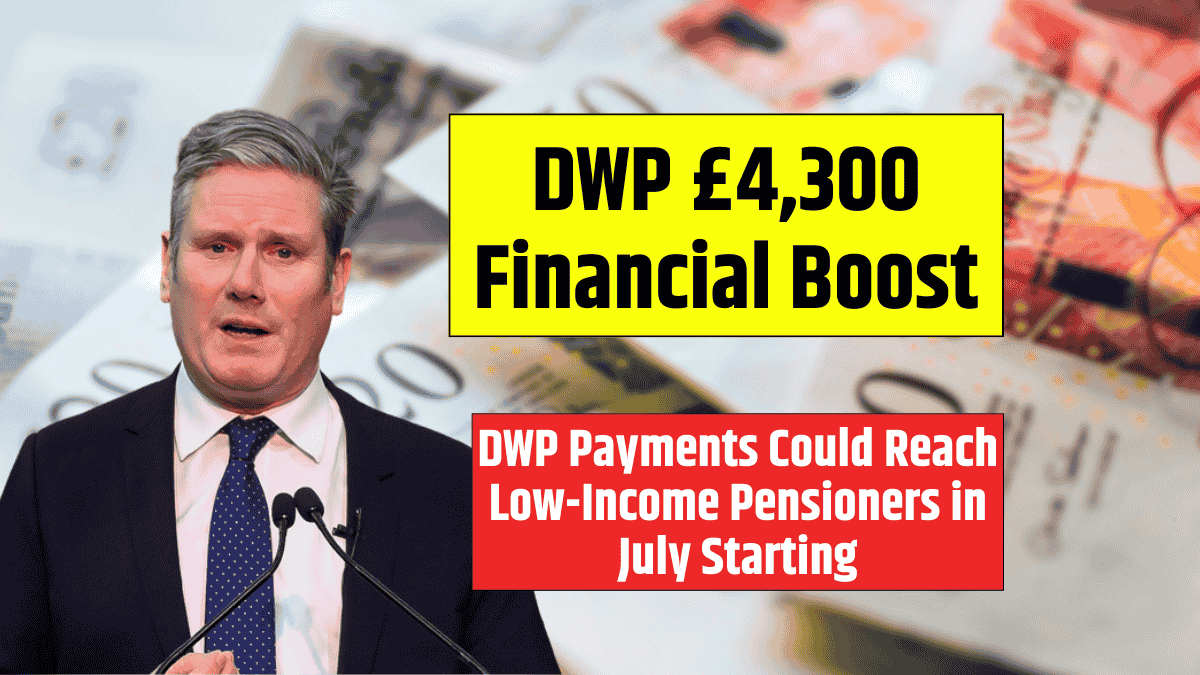DWP £4,300 Financial Boost: Pensioners on low incomes might receive the first of a series of payments worth £4,300 beginning in July. This is linked to Pension Credit, a benefit designed to help pensioners with their income.
According to the Department for Work and Pensions (DWP), it currently takes about 50 working days to process a Pension Credit application. So, if someone applies this week, they could expect to get paid by July.
Pension Credit Processing and Claim Rates
Last year, 77 per cent of new Pension Credit claims were handled within the target 50 working days, from application to the award decision letter. However, the recent removal of Winter Fuel Payments from around 10 million pensioners by Labour Party Chancellor Rachel Reeves has caused a big increase in Pension Credit applications.
Since that announcement in July, 150,000 more pensioners have applied. The government says there is usually a 10-week wait between submitting an application and getting a decision.
Political Reactions to Pension Credit Changes
Liberal Democrat Treasury spokesperson Daisy Cooper criticized the government’s handling of pension support this winter, calling it a “damning indictment” and worrying that millions of vulnerable pensioners will lose their winter fuel payment as cold weather approaches.
Similarly, Shadow Work and Pensions Secretary Helen Whately warned that many eligible pensioners might miss out on support they need.
How Much Is Pension Credit Worth?
The average weekly amount for Pension Credit is around £75, which adds up to more than £3,900 a year. Besides the cash support, Pension Credit also makes pensioners eligible for extra benefits like the £300 Winter Fuel Allowance. It can also help with discounts on things like BBC TV licences, Royal Mail redirection, Council Tax, and more.
Understanding Guarantee Credit and Savings Credit
Pension Credit has two parts: Guarantee Credit and Savings Credit. Guarantee Credit boosts your weekly income up to a minimum guaranteed level. This amount changes every year based on inflation. The income considered includes money you earn from work, pensions (including the State Pension), and an assumed income from your savings.
Savings Credit works a bit differently. It doesn’t just look at how much money you have saved, but also the income you get from those savings, any extra pension pots, and earnings from work or other sources.
Low-income pensioners may soon receive significant support payments starting in July through Pension Credit, which helps boost income and offers various extra benefits. However, the removal of Winter Fuel Payments has caused an increase in applications and longer wait times for decisions.
It’s important for pensioners to apply early to get help as soon as possible. Understanding how Pension Credit works—especially Guarantee Credit and Savings Credit—can help pensioners get the most from their benefits.
FAQ
Q: When will low-income pensioners receive the £4,300 Pension Credit payments?
A: Pension Credit payments could start arriving in July for those who apply soon, as processing typically takes about 50 working days.
Q: Why are there more Pension Credit applications now?
A: The government removed Winter Fuel Payments from 10 million pensioners, causing many to apply for Pension Credit to get extra help.
Q: How much does Pension Credit pay on average?
A: The average weekly amount of Pension Credit is about £75, which totals over £3,900 a year.
Q: What extra benefits come with Pension Credit?
A: Pension Credit gives eligibility for Winter Fuel Allowance, discounts on TV licences, Council Tax, Royal Mail services, and more.
Q: What is the difference between Guarantee Credit and Savings Credit?
A: Guarantee Credit tops up your income to a minimum level based on your earnings and pensions, while Savings Credit considers income from savings, additional pensions, and earnings.

How can I find out